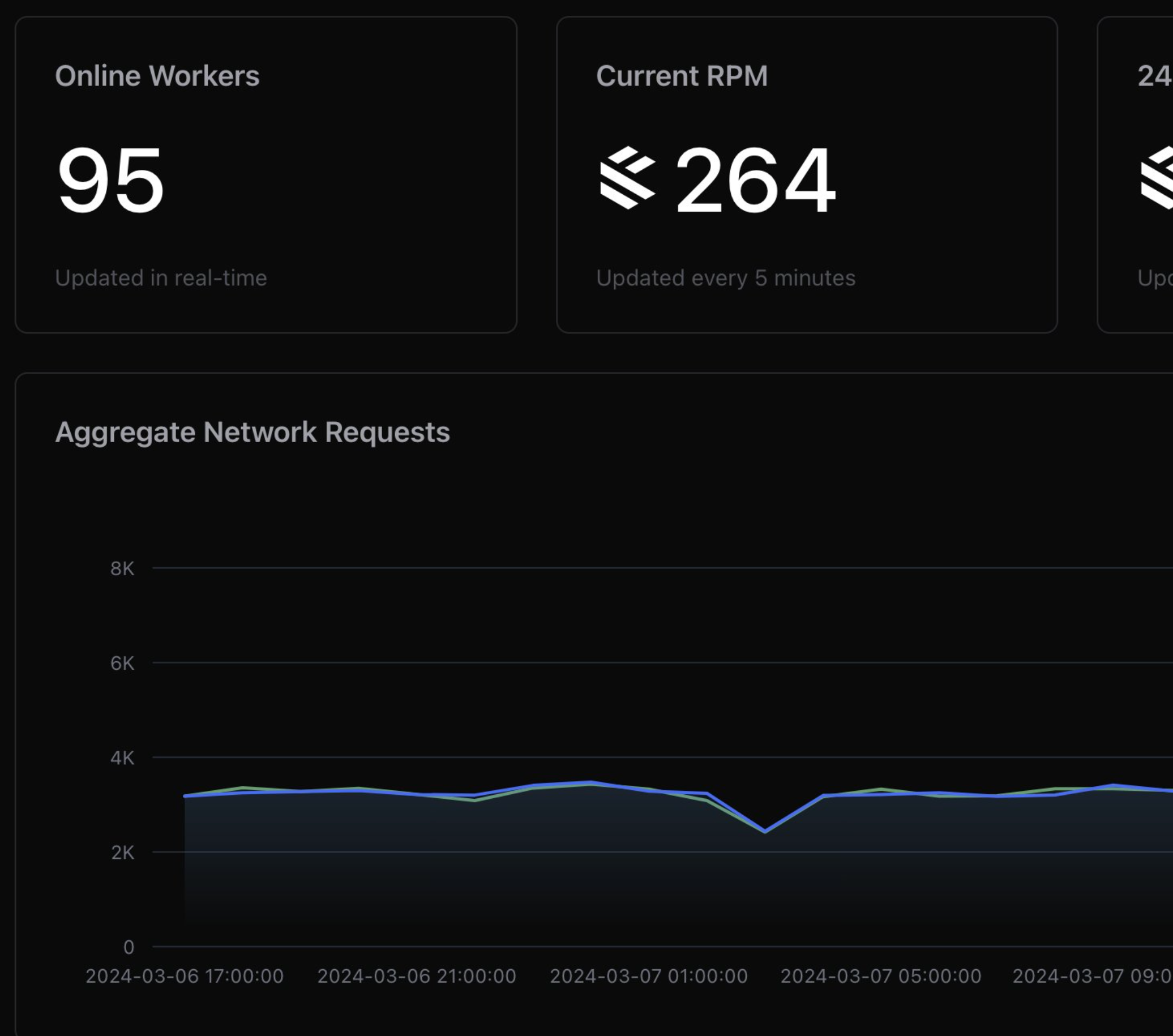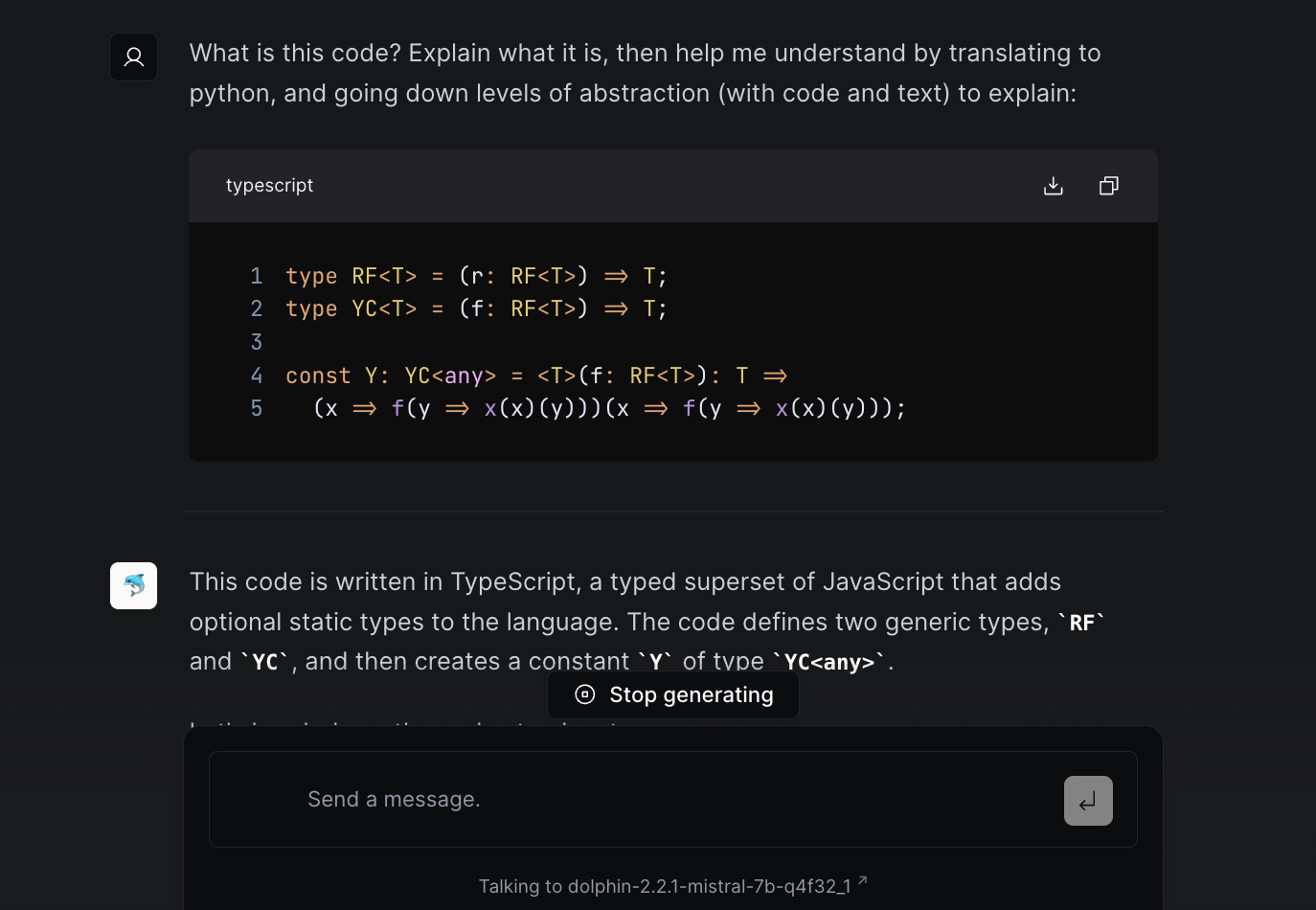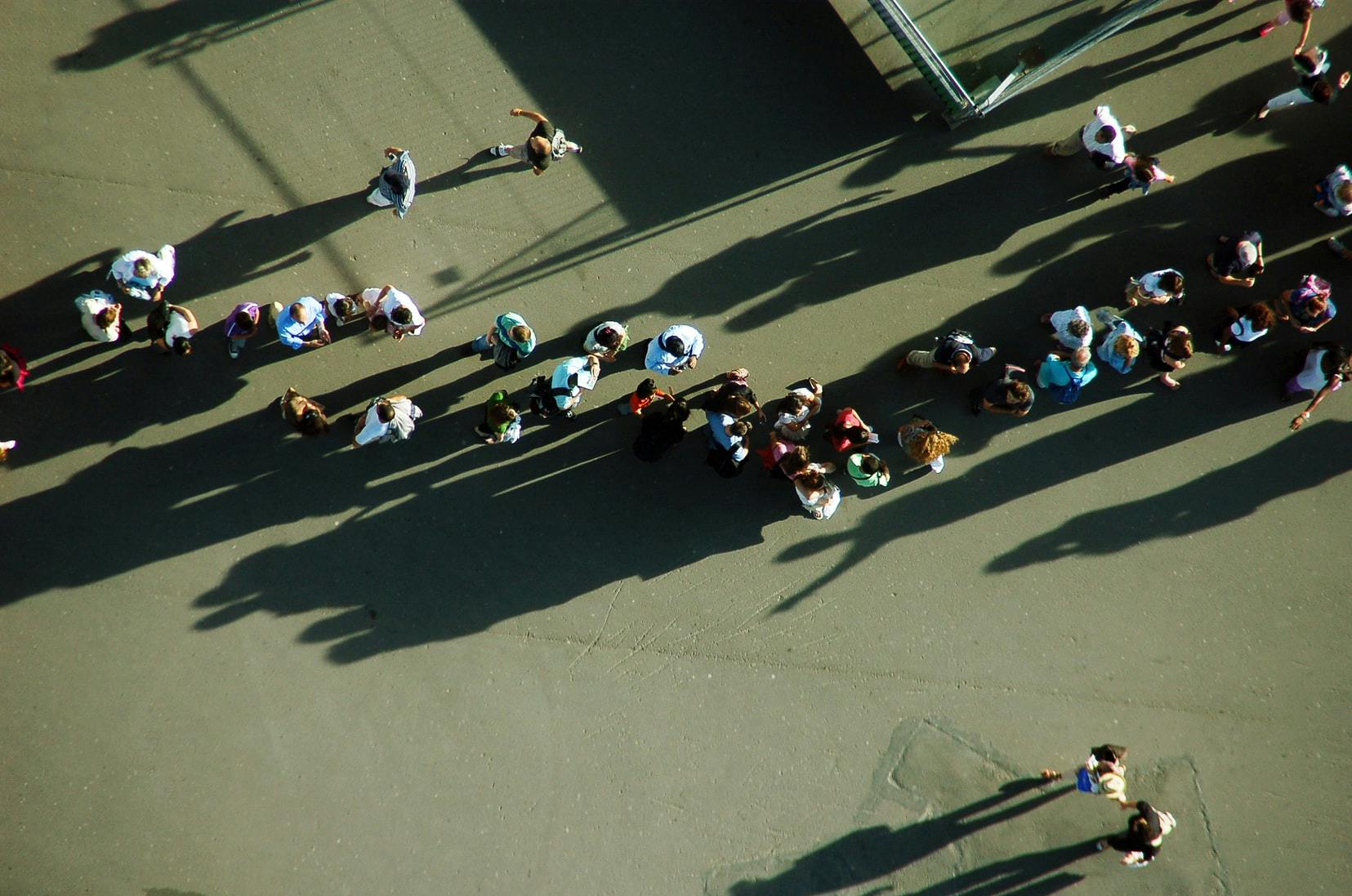Here's a small exercise that needs nothing more than you:
Take ten minutes and do nothing. I'll add a few guidelines:
- You're not allowed to change your environment to make things easier. No hiking up hills or running on treadmills beforehand, just take ten minutes. Wherever these words happened to find you, that's where you are. You'll know if you're cheating. I'll know.
- Try not to think furiously. If you find yourself going further and further down a particular rabbit hole (like that guy that cut you off in traffic or that corner of your room you were meant to clean up), pull out and think of something else (or nothing).
- You are allowed one look at the clock. A second look and you fail if the time hasn't already passed.
If this worries you, take five instead. If that worries you, take three.
How did it go? Did you see something you might not otherwise have? Did you think something that surprised you? Add a comment if you're okay with me knowing.
§Bigger than you think
Learning to do nothing has been my biggest victory of the year. In a year that involved personal, professional, physical and social ups and downs, this one stands out as the biggest win, and the one that contributed most to all the other wins. Let me explain.
A few years ago, I was taking a small break with some friends at a cliffside motel in Varkala. It was around morning - 6 am I think - when I saw a man sit out near the edge of the property in one of those Nilkamal plastic chairs that dot the landscape of Kerala. He was dressed and seated unremarkably, except he was turned away from the beach or the cliff.
As I worked and listened to music, I kept being distracted by this man. He was clearly a local (or someone who worked nearby), and I watched him sit there for over two hours and do… nothing. Nothing at all. He wasn't sleeping, wasn't slouching, had his phone on the ground, not a scrap of paper in sight, and he just sat there.
I'm not sure why that transfixed me at the time, but it did - and I became obsessed with the act. Is this something I could do? I remember long periods of doing nothing as a child, being very interested in shampoo bottles and how the shapes on some walls looked like people. I remember making up games to play with myself and building rock castles.
All of that - along with the ability to just do nothing - seemed a far cry from my current life. There was always something to do or something to think about. It might have been that I was graduated into 'work hard, play hard', where everyone was either aggressively working or aggressively relaxing.
Don't get me wrong, I've had long peaceful moments in my life relaxing in the mountains on a walk, after a long bicycle ride, or a long motorcycle trek. These moments were genuinely wonderful, but they seemed inspired by circumstance. The thought of doing it on command - anywhere I was - scared me a little.
I'm not sure when it happened, but somewhere along the way of shortening attention spans, distractions and work, I'd gotten a little scared of being bored. Maybe a lot.
Not sure why, but I forgot about this whole thing for a little while. About a year ago, I was prescribed an MRI by an ENT (different story, long story) and went to a clinic to get checked out. After some waiting, someone really nice told me to change into scrubs, put all my things (phone, watch, etc) into a locker, and sit in a room they pointed at until it was my turn.
I put everything away, and off I went to sit in what looked like a small store room with unmarked cardboard boxes, a single chair, and nothing else. Also an auto-closing door.
Unremarkable so far, except there was some sort of slowdown and they left me in there.
I was very quickly reminded of the man, of doing nothing, and left wondering if I'd been right to be afraid of boredom. Without a watch to mark the passage of time or something to do, I quickly turned to that old internal content machine - the self-monologue. Turned out today was not a good day for the internal voice.
After spending what seemed like an eternity (turned out it was 40 minutes), someone found me, apologised, and I was soon relieved to hear the banging of the MRI magnet.
I was no longer on the fence about trying to get better at this old skill.
§Trying to do it
I started by trying to reduce the number of things I was trying to get done in the interstitial periods of my life, which meant actively cutting down on the amount of content per day.
I used to listen to music while I was making coffee or cooking dinner. Heading out for a bike ride meant I would try to listen to a podcast or a work recording and catch up a little. If I was in a cab for a long period (or waiting for a meal), I would pull out my phone and finish emails.
The goal wasn't to stop doing these things in the long term. Trying to cut them out was the easiest (but not easy) path to learning to be okay with no pace at all, or at least a slower pace of life.
I definitely went through intense periods of being bored, trying to fall back on interesting thoughts. There was even the time I counted every line on a block of wood trying to see how many rings were in the tree it came from. It also felt wrong somehow to not be actively doing something relaxing (like social media or movies or youtube), or something about work.
Slowly but surely, it became easier to just do nothing, and with it came a bunch of changes to my life that I didn't expect.
§Idle playgrounds
The biggest underlying change has been that my mind has learned idle, and to not fear an empty state of affairs. My mum has always been fond of saying that an ‘idle mind is the devil's playground', and Holmes (of the Sherlock variety) has a memorable quote in my mind:
“Give me problems, give me work, give me the most abstruse cryptogram, or the most intricate analysis, and I am in my own proper atmosphere. I can dispense with artificial stimulants. But I abhor the dull routine of existence.”
These have been on my mind a lot - in trying to reconcile the spirit of these things (which I once believed in) with what I was now finding.
I think an idle mind is nothing to be afraid of, if you have a mind that is not afraid to be idle.
I have been in situations where I find myself circling a familiar, self-destructive thought, simply for the fear of not having anything else to think about. Wouldn't it be wonderful if I could simply have thought about nothing at all instead? Without this option, you end up at the mercy of distractions that you hope are strong enough to distract you to your destinations.
Given enough time to be comfortable with it, an idle state becomes a great jumping-off point that you can return to and live in at your leisure. This has added to a number of massive benefits to my everyday life.
§Benefits
One of the biggest changes has been in my demeanor, and it's something more than one person in my life has remarked on: I'm less hurried, internally and externally, for a lot more of the time. I'm not racing to an activity after I'm done with another, nor am I vaguely impatient when I'm in between things, or headed somewhere.
This has also made me a lot less perturbed when interrupted. If I'm interrupted, I'm now a lot more okay with the context switch, and usually not in a big hurry to go back to the thing I was on. Exceptions exist, but the average day and emotion have been far calmer and unhurried.
The second is sleep. Being okay with nothing has given me back my naps and made sleep far easier. At some point, I think I had grown afraid of that period of nothing between the last thing of the day and sleep. Not very afraid, but enough to make myself do things until I was tired enough to fall asleep without that interlude.
I'm now happy to sit down on a couch, take nothing with me, and look around until I fall asleep. I cannot emphasize how amazing this has been.
Finally, it has made it easier to spend time with the people I care about. I find myself being less impatient in my mind, being a far more comfy listener, and feeling it easier to adjust to the pacing differences in interaction. Looking back on cases where I was planning what to say while someone else was talking, I'm starting to realize that it wasn't because I wanted to speak, but because I wasn't being engaged enough. I couldn't just do nothing, or do less.
It has also made it easier to be a little freer from the yoke of action-reaction. I've always believed that free will is often exerted in the things not said, and the actions not taken. Having a more comfortable idle state has made everything less of an imperative, and my actual actions a lot more considered.
§Conclusion
Overall, it's made my life a lot easier. The funniest thing is that I've found ten minutes of really doing nothing relaxes me more than hours of doing things that are fun for me.
When it works, that is. This wasn't a switch or a toggle, and I'm definitely not on the other side. I'm still impatient at times, and I do fear being bored. I don't always find it easy to do nothing.
But I'm convinced of the benefits and the importance. It's getting easier, it's something I will keep at, and it's something I recommend.
(This was initially a paragraph in the YIR, but I kept coming back to add more. At some point it was too long to fit. Interestingly enough, since it became a post of its own I've been trying to make it smaller and simpler. Happy new year!)
Not a newsletter





